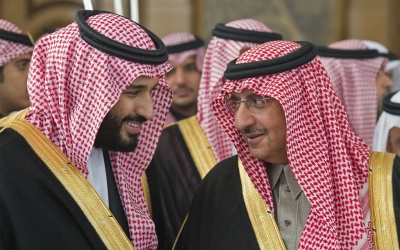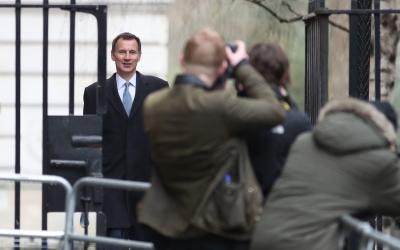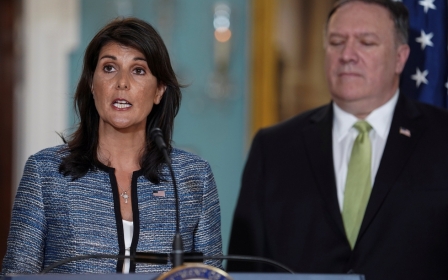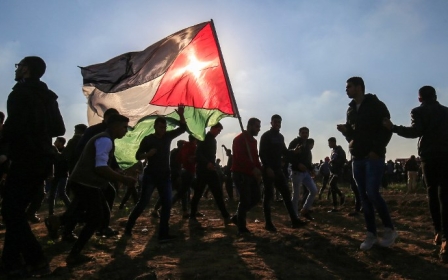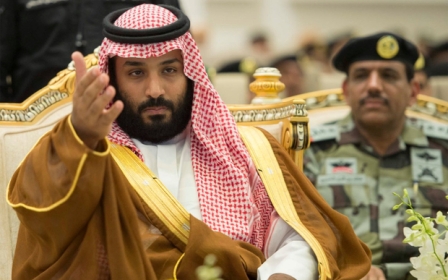HRW calls on UN states to vote against Saudi Arabia's bid for rights council
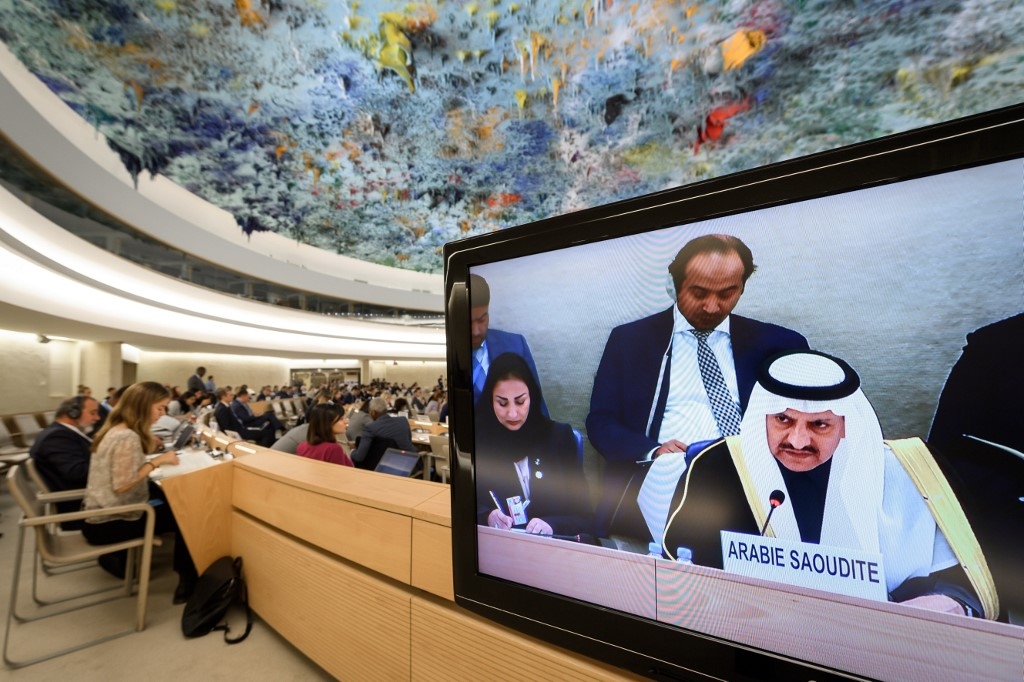
Human Rights Watch (HRW) has called on UN member states to vote against bids launched by Saudi Arabia and China for seats on the body's Human Rights Council, pointing to the countries' "massive rights violations" both at home and abroad.
The UN General Assembly is set to hold elections for 15 three-year terms on the 47-nation Human Rights Council (UNHRC) on Tuesday, but HRW has warned that a lack of candidates running for seats may result in "problematic" countries winning spots by default.
'China and Saudi Arabia have not only committed massive rights violations at home, but they have tried to undermine the international human rights system they’re demanding to be a part of'
- Louis Charbonneau, UN director at HRW
"So far, only the Asia-Pacific regional group has a competitive slate, with five countries running for four seats. This means that the other candidate countries, even those not qualified, are virtually assured of seats on the UN’s top human rights body," the group said in a statement on Thursday.
In addition to Saudi Arabia and China, it said Russia's bid should also be voted down for its "numerous war crimes in Syria's armed conflict".
"Russia, often backed by China, has used its veto power in the UN Security Council 16 times to enable Syria to continue using chemical weapons with impunity and to block referral of the situation in Syria to the International Criminal Court," the group said.
New MEE newsletter: Jerusalem Dispatch
Sign up to get the latest insights and analysis on Israel-Palestine, alongside Turkey Unpacked and other MEE newsletters
On Friday, the Syrian American Council also called on Russia to be voted down for its role in the Syrian conflict in an emailed press release.
"Russia’s Vladimir Putin will use this appointment to continue human rights abuses in Russia and around the globe, including in Syria," the group said in a statement.
'Serial rights abusers'
While Saudi Arabia has announced reform plans, it continues to target human rights defenders and dissidents, including women's rights activists and others it has arbitrarily detained and prosecuted, the group warned.
Louis Charbonneau, UN director at HRW, called the countries "serial rights abusers" that "should not be rewarded with seats on the Human Rights Council".
"China and Saudi Arabia have not only committed massive rights violations at home, but they have tried to undermine the international human rights system they’re demanding to be a part of," Charbonneau said in Thursday's statement.
HRW also invoked a lack of accountability following Saudi Arabia's murder and dismemberment of journalist Jamal Khashoggi, who was killed in the kingdom's Turkish embassy in October 2018.
"Thirty-three countries at the current Human Rights Council session denounced Saudi rights violations and called for the release of all those arbitrarily detained. And the Saudi-led coalition continues to commit war crimes against civilians in Yemen," the group said.
In 2018, two British human rights lawyers asked for Saudi Arabia to be suspended from the UNHRC over 61 people "arbitrarily detained or disappeared" by the kingdom's authorities.
On Thursday, HRW also warned that the kingdom, along with China, has a history of using its seat on the council to prevent scrutiny of its abuses and those of its allies.
"Saudi Arabia has threatened to withdraw millions of dollars in UN funding to stay off the secretary-general’s annual 'list of shame' for violations against children," HRW said.
Regarding China, it highlighted a June call in which 50 UN experts urged for "decisive measures to protect fundamental freedoms in China".
At the time, the experts warned about China's "mass human rights violations" in Hong Kong, Tibet, and Xinjiang; the suppression of information at the outset of the Covid-19 pandemic, and attacks on rights defenders, journalists, lawyers and critics of the government across the country, HRW said.
'A mockery of the word 'election''
The mandate that created the UNHRC urges states voting for members to "take into account the contribution of candidates to the promotion and protection of human rights".
By mandate, council members are also required to "uphold the highest standards in the promotion and protection of human rights", something HRW warns, that China, Saudi Arabia and Russia have not lived up to.
Nepal, Pakistan, and Uzbekistan are also vying for the four seats available in the Asia and Pacific group, alongside China and Saudi Arabia.
The rest of the races see countries running unopposed.
Four countries have announced candidacies for the four Africa seats: Ivory Coast, Malawi, Gabon and Senegal. Ukraine is also seeking one of two Eastern European seats, alongside Russia.
In the Latin American and Caribbean group, Mexico, Cuba, and Bolivia are running unopposed for three seats. Britain and France are seeking the two seats available in the Western European and other states group.
"Uncompetitive UN votes like this one make a mockery of the word 'election,'" Charbonneau said. "Regional slates should be competitive so states have a choice. When there's no choice, countries should refuse to vote for unfit candidates."
"It's not good for human rights or for the rights council when the worst rights violators get elected," Charbonneau added.
"Fortunately, even the most abusive governments have been unable to stop the council from shining a light on rights violations around the world, though not for lack of trying. That's grounds for hope."
Middle East Eye delivers independent and unrivalled coverage and analysis of the Middle East, North Africa and beyond. To learn more about republishing this content and the associated fees, please fill out this form. More about MEE can be found here.


